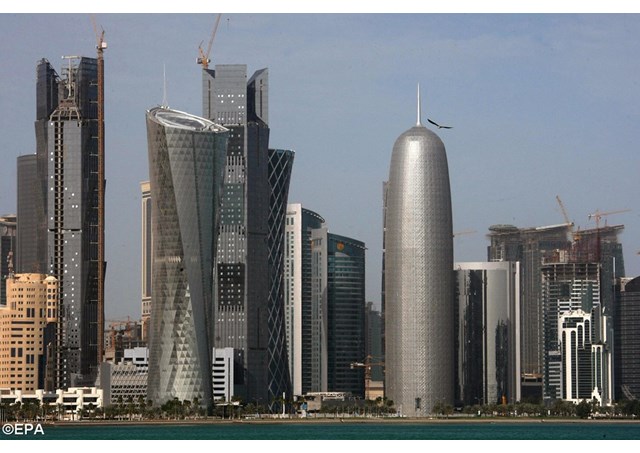
The Riyadh-Doha crisis is driving Catholics out of Qatar

The Gulf crisis involving Qatar and its neighbouring nations has hit many Catholic families says the region’s Catholic Church authority. From a social point of view, the ongoing row between Qatar and Saudi-led Gulf states has led "many people to lose their jobs" and "created a situation of uncertainty for the future," Bishop Camillo Ballin of the Apostolic Vicariate of Northern Arabia told AsiaNews.
The prelate whose jurisdiction includes Kuwait, Saudi Arabia, Qatar, and Bahrain, spoke about the situation of Catholic immigrants in Qatar who have been badly affected by the serious dispute that broke out in June between Riyadh and Doha. "This situation ends up touching Christians who have no personal interests in local politics," Bishop Ballin said. Uncertainty "does not encourage investment and the result is a blockaded country."
The tiny, oil- and gas-rich state of Qatar has been cut off and isolated by some of the Arab world's most powerful countries, which have accused it of supporting terrorist groups. In a co-ordinated move, Bahrain, Saudi Arabia, the United Arab Emirates (UAE), and Egypt cut off diplomatic ties with Qatar on June 5 and restricted its access to their airspace and ports while sealing its only land border, with Saudi Arabia. The effects are already being felt in Qatari food stores, international airspace, the global oil market and elsewhere.
Saudi and its allies have extended the deadline by 48 hours for Qatar to accept a list of 13 demands or face further sanctions. The initial deadline expired on July 2. The four said early Wednesday they had received Qatar's response to their demands for ending the diplomatic crisis just ahead of a planned meeting in Cairo. In a joint statement they said they would respond ``in a timely manner,'' though they did not elaborate on what steps they could take.
Bishop Ballin explained that the Catholic community in Qatar is made up of "economic migrants and labourers, largely from Asian countries, especially India, the Philippines, Bangladesh and Pakistan." Christians work in various fields, some specializing in "nursing, pharmacy, medicine and education". Others are unskilled labourers who do many things "to maintain their families". "In daily life, there are still no visible effects of the crisis,” Bishop Ballin noted, “because Iran and Turkey are providing the country with all its needs. However, these imports are more expensive and end up affecting poor people."
Many are afraid that if "there are other sanctions or if the countries that froze bank accounts decide to withdraw their money, it will be a tragedy for Qatar. The first to lose will be the poorest." The impact "is already visible in the labour market and in the fact that large investors are not interested in new projects.” “Instability is a clear danger that has been unfolding at a regional level since the fall in oil prices.
The Italian bishop explained that there is great fear that a new conflict in the region could have great repercussions, “especially on jobs and people’s lives." He said that "those who leave are certainly not planning to come back, at least not immediately.” Meanwhile, the Church is trying to “help those who stay, but it is not easy because the needs are great and the climate of uncertainty does not help.” “Moreover, the Church cannot provide for thousands of families. If there is no work, the only alternative is to leave." A dozen priests are in daily contact with the community.
Qatar's native population is just 313,000 Qatari citizens while there are 2.3 million expatriates, which fluctuates considerably depending on the season and job availability. Overall, Catholics number more than 300,000, among Latin, Maronite, Assyrian-Malaysian and ssyhrian-Malankarese rites.
Non-Arab foreigners represent the vast majority of the foreign population. Indians are the largest group (650,000), followed by Nepalis (350,000), Bangladeshis (280,000), Filipinos (260,000), Egyptians (200,000), Sri Lankans (145,000) and Pakistanis (125,000). (Source: AsiaNews)
| All the contents on this site are copyrighted ©. |


